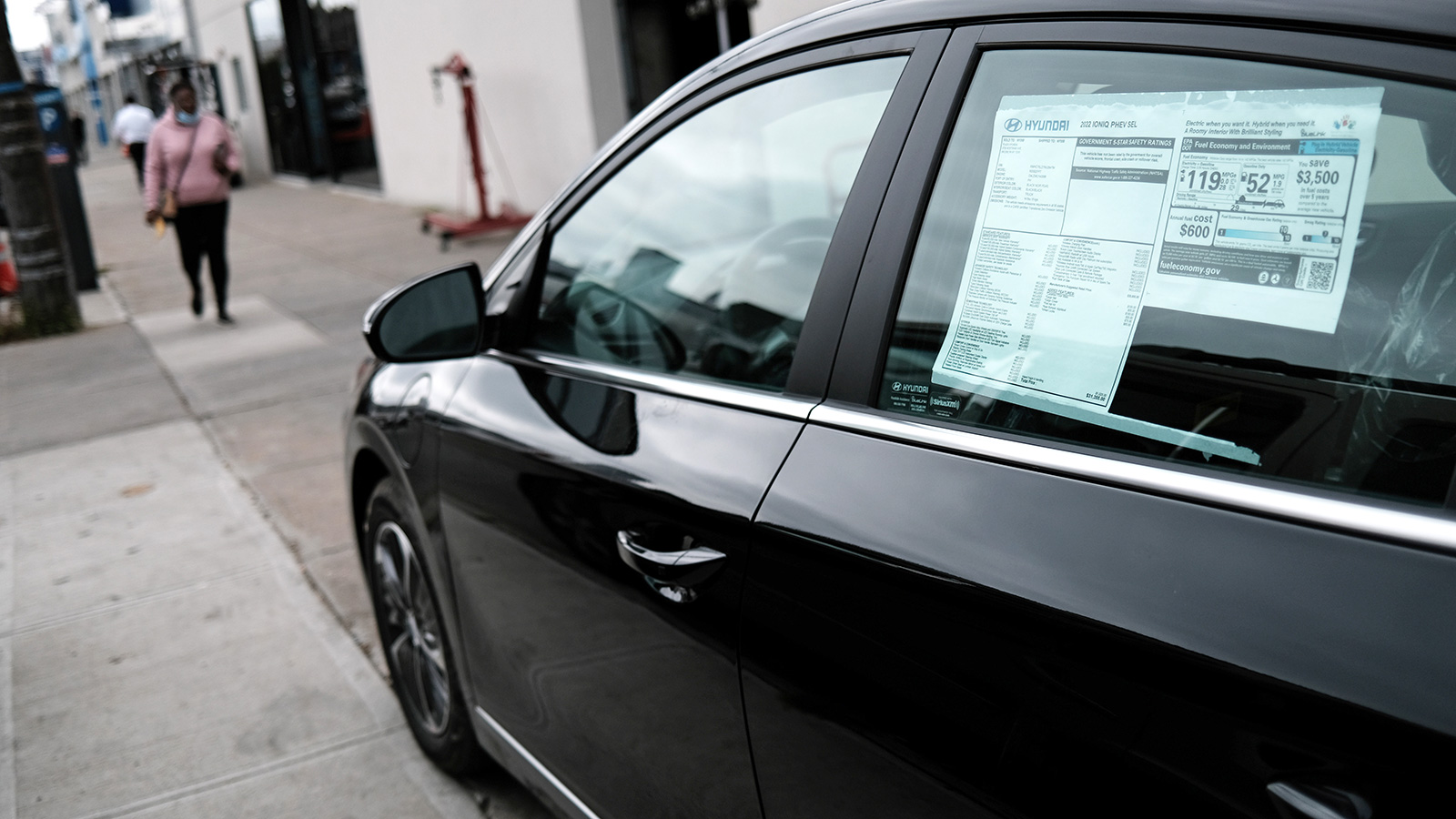Surprise: Dealerships Don't Like The FTC's Rules To Make Car Buying More Transparent
The National Independent Automobile Dealers Association (NIADA) argues that being more honest and clear will make your next vehicle more expensive.
In June, the Federal Trade Commission proposed a set of rules prohibiting shady dealership sales tactics that obfuscate a car's true cost to a potential buyer. The targets range from false advertising — like when a website lists a price that in actuality has a wealth of discounts attached to it that the customer may not qualify for — as well as surprise, last-minute fees for packages that some dealers assert are non-negotiable. Wouldn't you know, the National Independent Automobile Dealers Association isn't a fan.
The group, which comprises 16,000 used car dealerships, claimed what companies often do anytime the threat of increased consumer protections are floated by lawmakers — that they'd make products more expensive. From Automotive News:
The trade group estimated compliance would require at least $1.4 billion during the next 10 years, "driving up prices for consumers and making the car-buying process longer and more difficult." It said many of the issues the FTC sought to address fall under existing regulations.
"Independent auto dealers are small-business owners and the proposed rule from the FTC has the potential to negatively impact the ability of our members to operate their businesses," NIADA CEO Robert Voltmann said in a statement.
"We look forward to working with the commissioners and their staff to ensure NIADA members' voices are heard."
The argument is that all this disclosure and increased paperwork to tell people things they should know before plunking down hundreds of dollars a month for the next four years (or more) would tack on additional time to the car buying process, a process we all know to be expedient today. And time is money.
One FTC hypothesis — the one cited by NIADA — estimated dealerships would pay a combined $1.36 billion between 2022 and 2032 to comply. The other forecast costs of $1.57 billion over the same period. The largest element within these estimates involved dealerships spending $850.5 million or $994.4 million to disseminate various disclosures to customers. Either calculation assumes a sales professional paid $21.84 an hour spending 2 minutes preparing and delivering each disclosure.
While dealerships could over a decade absorb more than $1 billion in additional costs, the FTC estimated society would recognize more than $30 billion in benefits. It forecast $31.08 billion in gains over the decade under its first cost-benefit scenario and $36.34 billion under the second projection.
The time added at the dealer you'd ultimately purchase from is time you'd theoretically save as a buyer, with less disinformation to cut through:
"The Commission assumes that, as a result of the proposed Rule provisions prohibiting misrepresentations and requiring price transparency, each consumer who ends up purchasing a vehicle will spend three fewer hours shopping online, corresponding with dealerships, visiting dealer locations, and negotiating with dealer employees per motor vehicle transaction," the FTC wrote.
While some dealers appear to be shaking over this, and groups like NIADA are trying to instill fear in the public that being honest and forthright will come at a price, not everyone in the industry is opposed to the FTC's proposals. In fact, an earlier Automotive News story quotes an industry compliance expert, who's opinion on the matter basically amounts to the age-old principle that the only dealers especially aggrieved by these rules are those with something to hide:
The proposed regulations go beyond existing federal law and offer more specificity than the law that forbids unfair and deceptive dealership practices, according to Shannon Robertson, executive director of the Association of Finance and Insurance Professionals, an industry compliance and certification organization.
Robertson said good dealers adopt practices that protect them in all scenarios and felt his organization's adherents wouldn't be fazed by the new rules for F&I presentations.
"For an AFIP-certified dealer, none of these changes have any impact or surprise if the dealer's doing the things the way that we teach," he said.
Meanwhile, one Vermont dealer agrees that the rules around advertising and unnecessary products will be good...
Konrad Koncewicz, business manager of BurlingtonCars.com Auto Group in Vermont, said he supported the transparent advertising aspect of the proposal. "Rules like that are very sensible," he said.
Koncewicz said his state has stricter disclosure requirements and advertising rules — but neighboring states don't.
"There are places that will advertise some crazy cutthroat price, maybe on a car [that] doesn't even exist," Koncewicz said.
...though they have reservations about the potential restrictions around GAP insurance:
Koncewicz said he favored the idea of eliminating products that have no benefit. "We don't participate in things like that," he said.
But he called the FTC's GAP language "extremely vague." A number developed in consultation with the industry might be "more workable," he said.
GAP insurance — which covers the shortfall between the value of your car and loan balance in the event your car is totaled in an accident — happens to be overwhelmingly favored by those who hold it, according to Automotive News. However, it's certainly not necessary in all financing scenarios, particularly if you are putting enough money down up front or if you're financing a vehicle that tends to hold its value. Yet, some unscrupulous dealers will push it anyway.
In a nutshell, that pretty much highlights why the FTC's attention on these practices is necessary. Here you have a product that some people want and benefit from, peddled to those who don't need it as an upsell. If the greediest dealerships feel compelled to jack up prices to cover for this loss of ill-gotten revenue, at least the adjustments could be loaded on as markups, where they might be more visible before you even walk in the door.
